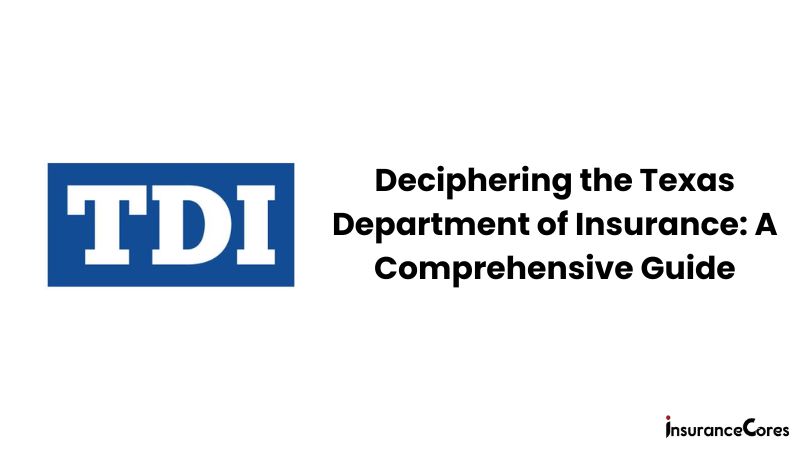In the vast landscape of insurance regulation, the Texas Department of Insurance (TDI) stands as a pivotal institution, safeguarding the interests of both consumers and insurers within the Lone Star State. Established to ensure fair and efficient insurance markets, TDI plays a crucial role in regulating insurance companies, licensing agents, and addressing consumer grievances. In this comprehensive guide, we delve into the intricacies of TDI, its functions, regulations, and frequently asked questions to provide readers with a comprehensive understanding of insurance in Texas.

History and Evolution of Texas Department of Insurance
The roots of TDI trace back to the late 19th century when the Texas Legislature recognized the need for regulatory oversight in the insurance sector. Over the years, TDI has evolved to adapt to changing market dynamics and legislative reforms, expanding its scope to encompass various aspects of insurance regulation and consumer protection.
Mission and Objectives of Texas Department of Insurance
At its core, TDI is committed to promoting a competitive and stable insurance market while ensuring fair treatment for policyholders. Its objectives include:
- Regulating insurance companies to maintain solvency and financial stability.
- Licensing and overseeing insurance agents and adjusters to uphold professional standards.
- Educating consumers about insurance products, rights, and responsibilities.
- Resolving disputes between insurers and policyholders through fair and impartial means.
Regulatory Functions of Texas Department of Insurance
Licensing and Registration
One of TDI’s primary responsibilities is licensing insurance companies, agents, adjusters, and other entities operating within the insurance industry. Prospective insurers and professionals must meet specific criteria and comply with regulatory requirements to obtain licenses or registrations.
Market Conduct Regulation
TDI conducts routine examinations and audits of insurance companies to ensure compliance with state laws and regulations. This includes reviewing marketing practices, claims handling procedures, rate filings, and adherence to consumer protection statutes.
Rate Regulation
In certain insurance sectors, such as property and casualty, TDI regulates insurance rates to prevent excessive premiums and promote affordability. Insurers are required to submit rate filings for approval, demonstrating that proposed rates are actuarially sound and not unfairly discriminatory.
Consumer Protection
TDI operates a consumer protection division tasked with handling complaints, inquiries, and disputes related to insurance transactions. Through outreach programs and educational initiatives, TDI empowers consumers to make informed decisions and advocates for their rights in dealings with insurers.
Frequently Asked Questions (FAQs)
Q: How can I verify the license status of an insurance agent or company?
Q: What should I do if I have a complaint against my insurance company?
Q: Does TDI regulate all types of insurance in Texas?
Q: Are insurance rates in Texas regulated?
Must Read:
- Intellectual Property Insurance: The Ultimate Guide to Choosing the Best Insurance
- Earthquake Insurance: A Comprehensive Guide for American Homeowners
Conclusion
The Texas Department of Insurance serves as a cornerstone of insurance regulation and consumer protection in the state, overseeing a wide array of functions to promote fairness, stability, and accountability in the insurance market. By understanding TDI’s role and regulations, consumers and industry stakeholders can navigate the complexities of insurance with confidence and clarity.